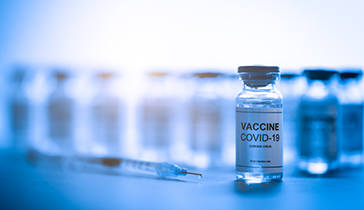The Asia Pacific Economic Cooperation (APEC) Leaders Meeting, just like most events these days, took place virtually in November, 2020. President Trump participated in the meeting along with the other 20 leaders from the APEC region. The topic, unsurprisingly, was COVID. APEC is a voluntary economic forum whose members include 21 of the world's major economies with coastlines along the Pacific. Notable members include the United States, China, South Korea, Japan, Canada and Australia as well as Indonesia, Malaysia, Singapore, Vietnam, Mexico, Chile and Peru among others. As a voluntary forum, there is no binding requirement, nevertheless outcomes from its meetings often inform global trends. As an example, the controversial Trans-Pacific Partnership (TPP) was born out of discussions held at a Senior Officials meeting of APEC.
The various events and meetings leading up to the Leaders Meeting explored the role APEC has in addressing global challenges such as COVID. If COVID has taught us anything, it is that we cannot overcome severe global challenges alone. As a voluntary forum, APEC allows for unfettered dialogue about the most pressing issues of the day. And today that issue is COVID, and challenges similar to COVID. First and foremost, the APEC Leaders attending the Leaders Meeting agreed that collaboration and if not that, cooperation amongst economies is paramount. Depending on geographies and politics, explicit collaboration may not be possible, in which event, the APEC ministers called on countries to cooperate where feasible. Such collaboration and cooperation could take the form of information exchange, research agreements, supply chain resilience and regulatory reliance. In this regard, Leaders agreed that there is a need to improve the narrative on trade and investment across the region.
We recognise the importance of a free, open, fair, non-discriminatory, transparent and predictable trade and investment environment to drive economic recovery at such a challenging time. In this regard, we reaffirm our support for agreed-upon rules of the WTO in promoting the stability and predictability of international trade flows.
APEC Leaders also called on members to harness the digital economy and other transformational technologies to tackle global challenges like COVID. Countries are coming to terms with today's digital realities by implementing regulations. Leaders urged caution against creating unnecessary and harmful barriers in this context.
We acknowledge the importance of cooperation in facilitating the flow of data and strengthening consumer and business trust in digital transactions.
They called on countries to facilitate interoperability between privacy and regulatory regimes to enable secure sharing of health-related data. More information about how APEC envisions the digital economy across the region can be found here and here.
A Life Sciences Innovation Forum Policy Dialogue held in September, focused on whether and how the Asia Pacific region could prepare for the spate of new transformative therapies that are making their way through the regulatory approval processes. Experts agreed that in this area, APEC can play an important role in facilitating dialogue between members, identifying best practices and building regulatory capacity through reliance.
APEC members also recognize the imperative for investment in health and health infrastructure across the APEC region. Strengthening regulatory systems, updating health delivery and manufacturing infrastructure, and investment into research ranked top amongst the solutions discussed. In this regard, APEC ministers via the High Level Meeting on Health and the Economy called on members to explore innovative, alternative financing models to expand access and availability of critical products. As part of a campaign to address substandard products, APEC ministers urged the adoption of best practices and dissemination of APEC's Supply Chain Security Tool Kit. In addition, ministers urged continued measurable regulatory convergence through the APEC Regulatory Harmonization Steering Committee.




.jpeg?itok=ByJuBfy-)








.png)


